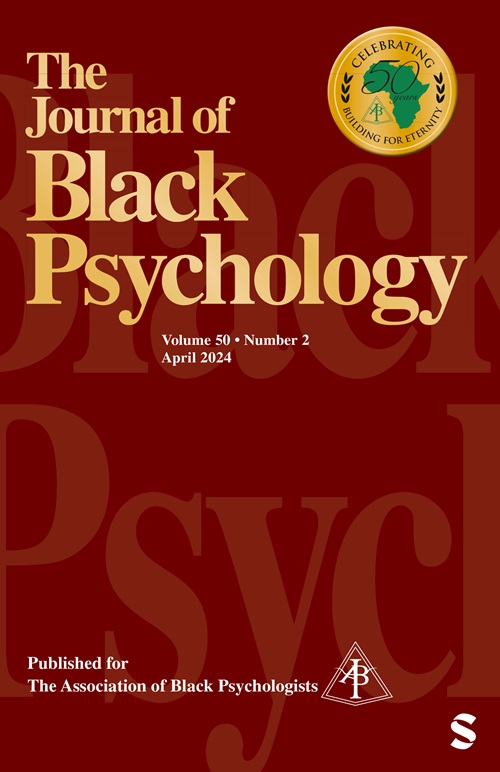Black Love, Activism, and Community (BLAC): The BLAC Model of Healing and Resilience
IF 2.2
3区 心理学
Q2 PSYCHOLOGY, MULTIDISCIPLINARY
引用次数: 3
Abstract
The purpose of this article is to describe the Black Love, Activism, and Community (BLAC) model of healing and resilience. The assumption of the BLAC model is that Black activism is inspired and sustained by love and community. Building on empirical research, liberation psychology, and African-centered psychology, the BLAC model identifies four culturally grounded domains of resilience (relationships, spirituality, identity, and active expression) that are hypothesized to serve as protective factors. These domains are also postulated to be critical components of culturally centered healing practices. Within the context of anti-Black racism, it is important to understand how activism can mitigate mental health outcomes among Black activists. The BLAC model also describes culturally centered intervention approaches for healing and wellness. Finally, applications of the BLAC model are discussed.黑人的爱,行动主义和社区(BLAC):治愈和恢复力的BLAC模型
这篇文章的目的是描述黑人的爱,行动,和社区(BLAC)模式的愈合和恢复力。BLAC模式的假设是,黑人行动主义受到爱和社区的启发和支持。在实证研究、解放心理学和以非洲为中心的心理学的基础上,BLAC模型确定了四个基于文化的弹性领域(关系、灵性、身份和积极表达),这些领域被假设为保护因素。这些领域也被认为是以文化为中心的治疗实践的关键组成部分。在反黑人种族主义的背景下,了解激进主义如何减轻黑人活动家的心理健康结果是很重要的。BLAC模型还描述了以文化为中心的治疗和健康干预方法。最后,讨论了BLAC模型的应用。
本文章由计算机程序翻译,如有差异,请以英文原文为准。
求助全文
约1分钟内获得全文
求助全文
来源期刊

Journal of Black Psychology
PSYCHOLOGY, MULTIDISCIPLINARY-
CiteScore
8.00
自引率
5.80%
发文量
22
期刊介绍:
The Journal of Black Psychology publishes scholarly contributions within the field of psychology toward the understanding of the experience and behavior of Black populations. This includes reports of empirical research and discussions of the current literature and of original theoretical analyses of data from research studies or programs. Therefore, the Journal publishes work in any of the areas of cognition, personality, social behavior, physiological functioning, child development, education, and clinical application, in addition to empirical research and original theoretical formulations outside traditional boundaries, all integrated by a focus on the domain of Black populations and the objective of scholarly contributions.
 求助内容:
求助内容: 应助结果提醒方式:
应助结果提醒方式:


